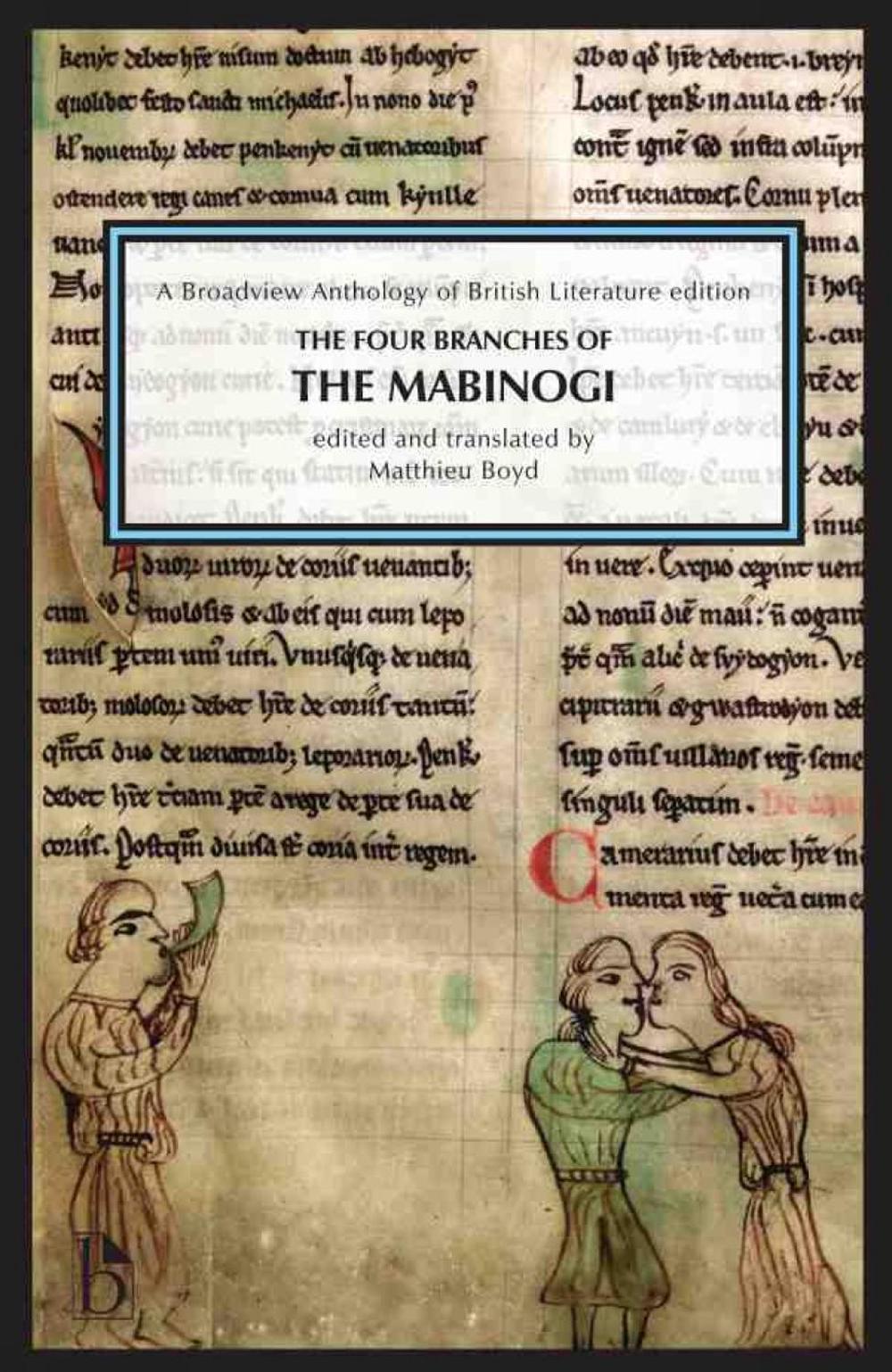
The Four Branches of The Mabinogi
A Broadview Anthology of British Literature Edition
$54.38
- Paperback
160 pages
- Release Date
14 September 2017
Summary
Set in a primal past, the Mabinogi bridges many genres; it is part pre-Christian myth, part fairytale, part guide to how nobles should act, and part dramatization of political and social issues. This edition of what has become a canonical text provides a highly engaging new translation of the work, an informative introduction, and a set of background contextual materials that help place the Mabinogi in the context of medieval Welsh history and culture.
Book Details
| ISBN-13: | 9781554813193 |
|---|---|
| ISBN-10: | 1554813190 |
| Author: | Anonymous, Matthieu Boyd, Stacie Lents |
| Publisher: | Broadview Press Ltd |
| Imprint: | Broadview Press Ltd |
| Format: | Paperback |
| Number of Pages: | 160 |
| Release Date: | 14 September 2017 |
| Weight: | 189g |
| Dimensions: | 216mm x 140mm |
You Can Find This Book In
What They're Saying
Critics Review
“A lively and often whimsical rendering of a medieval Welsh quartet of tales that are of supreme importance to our understanding of Celtic storytelling tradition.… It will lead a new generation of readers into the profound, often baffling world of ‘Mabinogic’ mystery, myth, and magic.” — Joseph Falaky Nagy, Henry L. Shattuck Professor of Irish Studies at Harvard University
“This is a fine, fun new translation—brisk, colloquial and dramatic, it captures much of the immediacy and color of the original…. The style is very succinct and colorful, much akin to folktales, where the characters enjoy some sort of essential or representative significance, even as they also emerge as individual personalities…. The laws, triads and other contextual materials translated in the appendices are very valuable and relevant for the interpretation of these texts; their inclusion is much appreciated. I also like the fact that The Four Branches of the Mabinogi are given their own separate volume, rather than being tumbled in with the other Middle Welsh prose texts.” — Craig R. Davis, Smith College
“Boyd’s prose is clear and cogent, and makes for easy and pleasurable reading…. The contextual information in the back of the book contains manuscript images, as well as reprints of sections of the Welsh laws, triads, and Gerald of Wales’ Descriptio Kambriae together with short introductions, and interspersed with expository notes about the relationship of each text to the Mabinogi narrative. This section is very good…. [T]he new translation’s greatest value as a teaching tool may lie it in its sharp contrast to previous versions, and resultant ability to provoke discussion. … [The translation] is heavily modernised, and to a casual reader, easier to follow. It is perhaps more likely that a student will carry out the entirety of a reading assignment in this edition than in the Davies version, where it is sometimes necessary to re-read portions to fully get the sense of them. … The name translations (and their justification in the introduction), combined with the tonal shift, suggest that an attempt is being made to re-create an experience approximating that of a medieval Welsh reader, both in the appreciation of the rich double-meanings of the names, as well as familiarity with the colloquial language of the text.” — Michaela Jacques, Harvard University, in North American Journal of Celtic Studies
“The heart of the book, the four branches themselves, moves swiftly and often playfully in a way that makes the branches easier to read than in most previous translations. … I highly recommend Boyd’s new translation of the Mabinogi, especially as a text for English-speaking undergraduates. Instructors and students alike will appreciate its economy, readability, and faithfulness to the Medieval Welsh texts it translates.” — Philip Freeman, Pepperdine University, in Journal of English and German Philology
“Matthieu Boyd retells these stories in clear, flowing English, which is well laid out and will be easy for any reader to take in. This, of course, adds much value to the book as a teaching aid. Broadview’s ‘Anthologies of British Literature’ series is an admirable one, in its selection of material and its presentation, with clear fonts and well-spaced text. The on-page notes-cum-glosses in this volume are particularly useful, as there is no need to thumb to the end of the book for essential information. … This is an inspiring book, one of the best in the series, which will hopefully encourage a much-neglected medieval culture to be more widely studied.” — Lesley Coote, Studies in Medieval and Renaissance Teaching
About The Author
Anonymous
Matthieu Boyd is Associate Professor of Literature at Fairleigh Dickinson University.
Returns
This item is eligible for free returns within 30 days of delivery. See our returns policy for further details.




